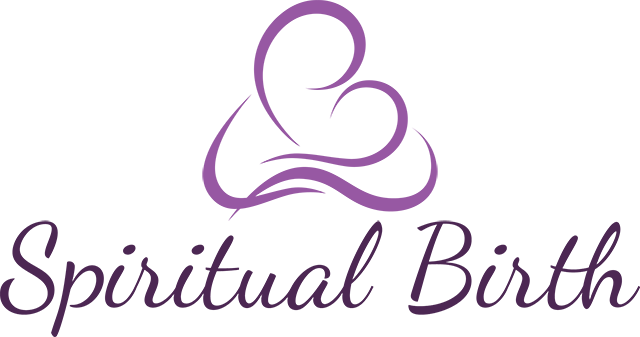 Of Mothers and Midwives by Marianne Littlejohn
Of Mothers and Midwives by Marianne Littlejohn
The disparities between the rich and poor seem to be growing and the effects of poverty; poor housing and unemployment disempower millions of women. Yet, despite these problems, it seems somehow fitting to begin at the beginnings of life, and find solutions through exploring the vital significance of pregnancy and birth and why midwives play such an essential role in the future health of our world.
Pregnancy
As soon as the sperm enters the ovum, a baby is conceived. This is an amazing phenomenon, rendered all the more amazing by the work of the late psychiatrist, Dr Graham Farrant, who pioneered therapeutic work with patients in the area of cellular memory. It seems that cells remember events and that all experiences are stored in our bodies as well as our brains, including conception.
Clients in regressive psychotherapy have been able to access memories from womb life and have been aware of their parents’ experiences, including bereavement, rejection, fear, and pain. As the embryo takes human shape in the mother’s body, the foundations of the neurological structures are laid in the limbic system of the foetal brain. The limbic system of the foetus apparently records all feeling experiences in the womb and will be affected by what the mother experiences during her pregnancy. Whether the mother is well nourished, stressed, bereaved, anxious, healthy or ill may all influence prenatal development of the foetus.
The foetus is increasingly aware in the womb, the sensation of hearing being one of the first senses to develop, which suggests that language is first learnt in the womb and that therefore, learning begins in the womb, not after birth. By the end of a pregnancy, the unborn baby can hear, see, touch, taste and smell acutely and this prepares the baby for the next momentous occasion in his life, namely birth. After all, the first nine months of human life occur in the womb, before and not after birth!
Midwives care for women during pregnancy, listening to the heartbeat of the unborn child and safeguarding the mother’s physical health. This is a time when she may be the person to confide in and is someone who can offer comfort and counsel. Midwives monitor a woman’s health and that of her baby during her pregnancy, can detect problems and refer to medical doctors when necessary. Information and education given to the parents about the coming birth and their role as parents is imparted by midwives, both on a one to one basis and in classes and workshops. True midwives are called and approach their work with feeling and passion as well as sound scientific knowledge and artful wisdom.
Birth and Babies
Women have the right to participate in the decisions made during their birth process, they should be able to move around during labour, and adopt a natural comfortable position for the actual birth. They should be able to choose where they have their babies, whether at home or hospital and whom they have with them.
Water is a wonderful method of natural pain relief during labour even though a woman may not actually give birth underwater. Women give birth best in an undisturbed environment, where the body’s natural hormones can take over. Michel Odent, a pioneer of undisturbed birth, likens the birthing process to that of lovemaking. The atmosphere of lovemaking when a baby is conceived, where there is eye contact, soft loving sounds and gentle touch, dim lights and privacy, should be the recreated for the birth of a baby.
A mother needs to be able to trust her body and surrender to the process of birth in the presence of people she loves and trusts. Mother and newborn baby should be given ample time to bond and get to know each other in the critical period straight after birth. Where birth cannot be natural, such as in an emergency caesarian section, a gentle supportive environment should be maintained, and healthy mothers and babies should not be separated after birth.
Regular health checks by a midwife ensure a healthy pregnancy and prevent serious complications by detecting problems early. The midwife is trained to support pregnancy and birth as a normal process of human life and refers mothers to obstetricians, the experts only when pregnancy and birth are complicated.
A mother brings her history with her to her pregnancy and birth experience. Her childhood, her relationship with her own mother, her circumstances and her fears about caring for or birthing the new baby are all factors that will play a role in how she will be a mother. This is why a mother needs gentle support and assistance at this time and this is what a sensitive midwife can offer.
The midwife offers a shoulder to cry on and can use her skill to help the mother through minor emotional crises and refer her to the appropriate service when required. Midwives are sensitive to the woman’s need for privacy and emotional support. She gets to know the family, sometimes generations of a family and this continuity gives mothers a feeling of safety and security. Since time immemorial, midwives have been guardians of birth. In our modern western world, this may seem to have changed, as birth has become more and more medicalized and caesarian section rates have increased. Public Health and Private professional midwives are challenging the medicalized model of care and offering both competent medical care in partnership with hospitals and obstetricians, as well as the emotional support needed for the important life changing event of birth.
The midwife who accompanies a woman through the most important transition of her and her baby’s life is indeed fortunate and cannot help but be filled with gratitude for this most sublime and humbling profession.

Deep thinking – adds a new dimesionn to it all.
Such a beautiful article Marianne. We are so privelaged as midwives to be present at the miracle of the birth of the baby and the birth of the mother. A few months ago I attended the birth of a woman, deaf since birth. She used only sign language and although she could lip read, she spoke and understood only arabic. Our only form of communication was therefore sign (which I do not speak) and so I used my usual combination of smiles, touch, eye contact and sign that we developed during our time together.
Although it was in a hospital setting, it was absolutely silent and undisturbed. I got gooseflesh when during transition and with the irresistable urge to push she started a deep gutteral primal groan, the only sound that she made throughout the entire labour. She was so connected to herself and her process and it was so humbling to share it with her.
Thank You Karen for sharing this experience. You were sensitive and reverent and did not disturb her process, rather facilitated and empowered her, imparting dignity and self respect. We as midwives are privileged indeed.